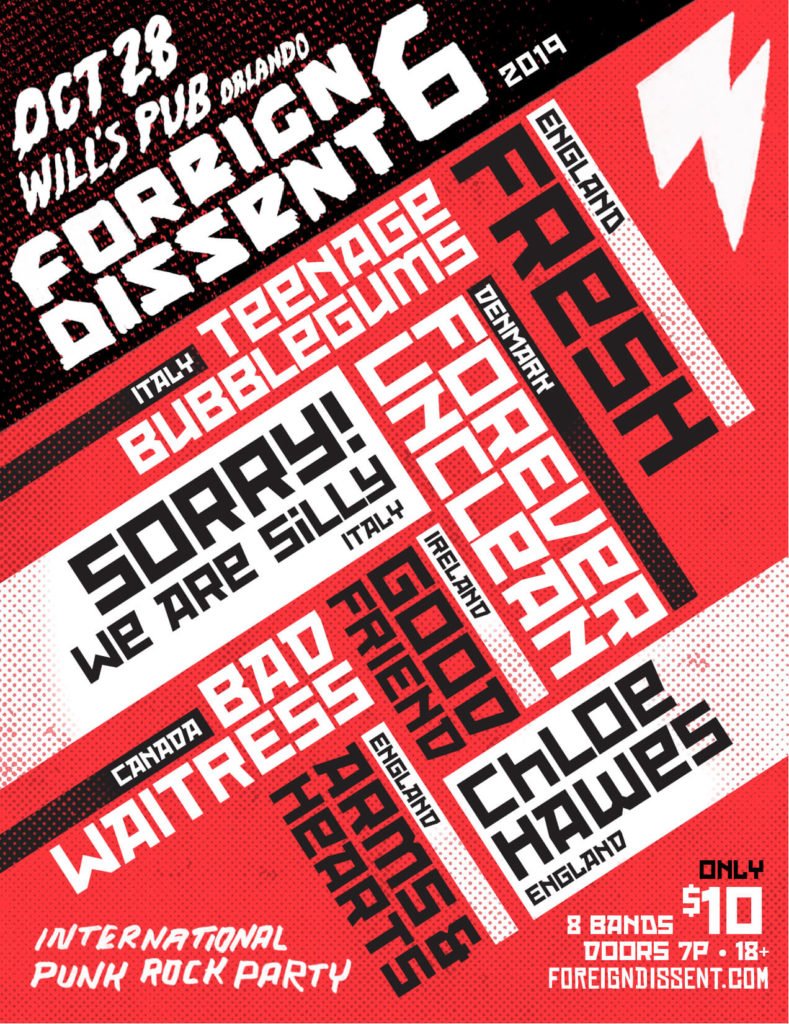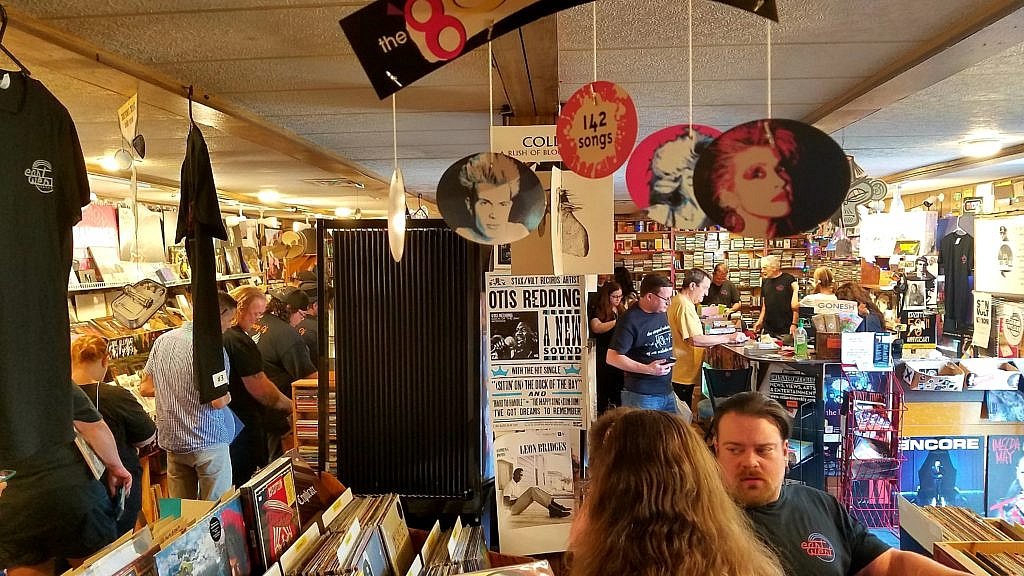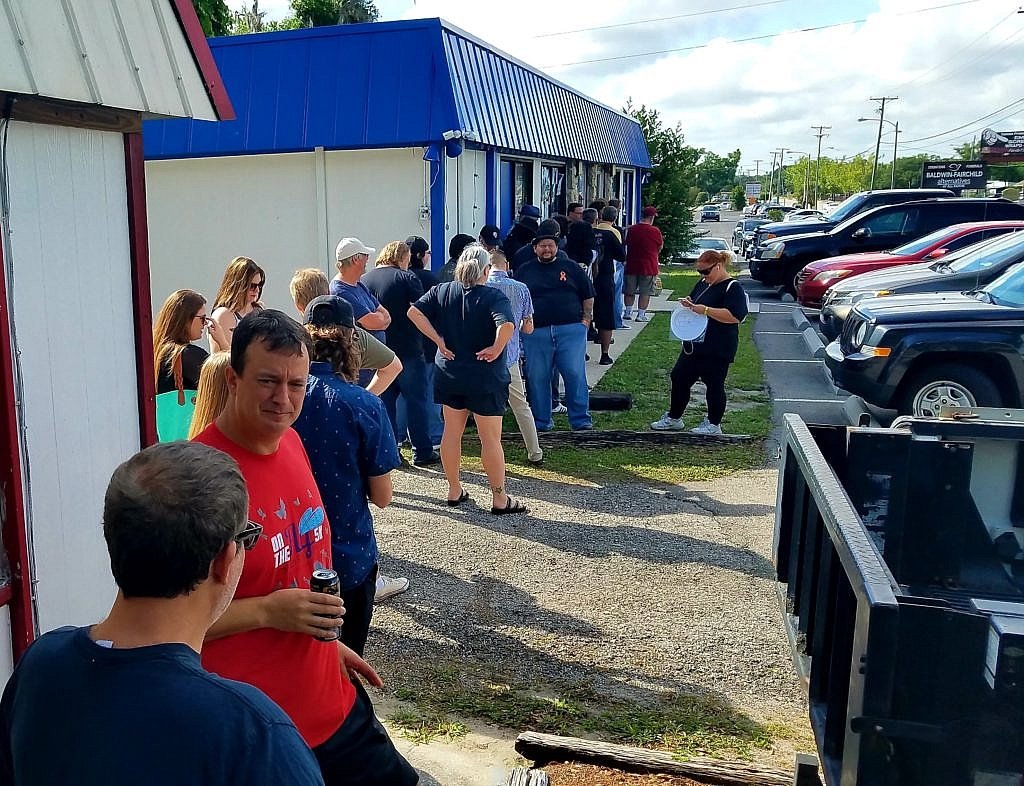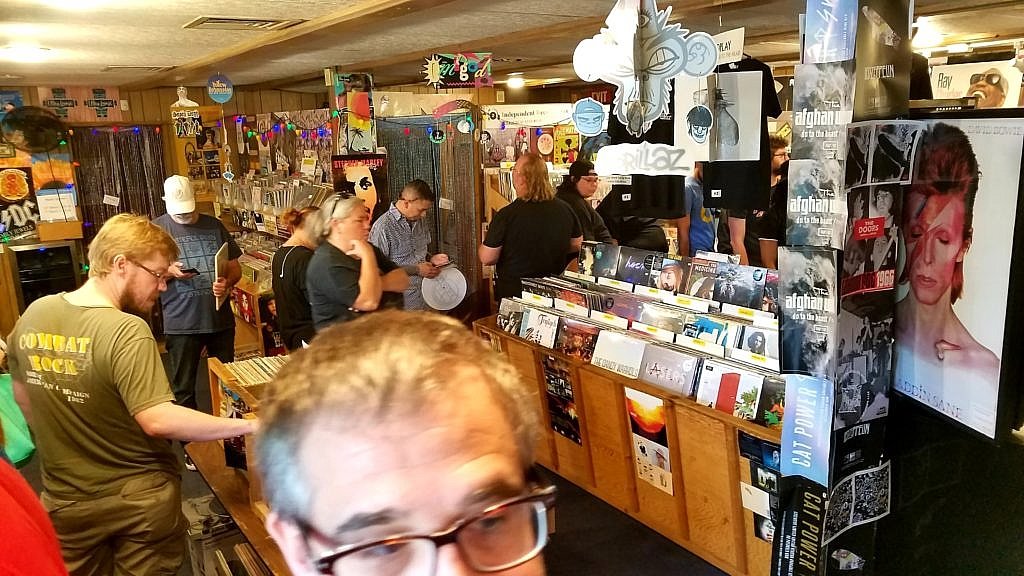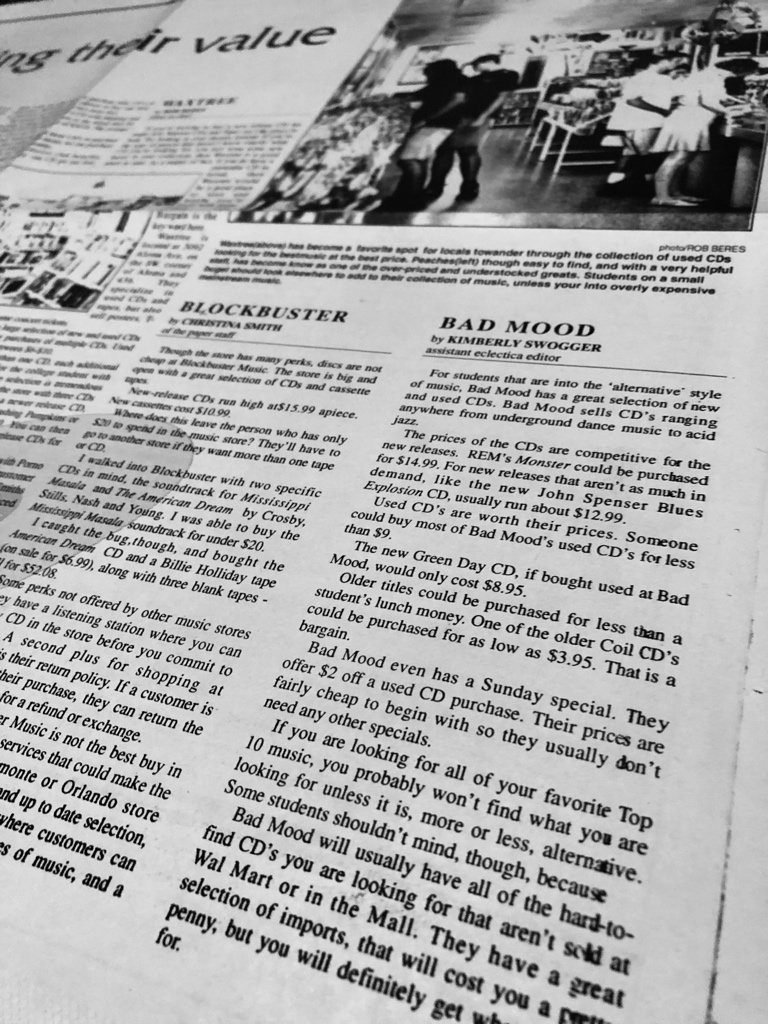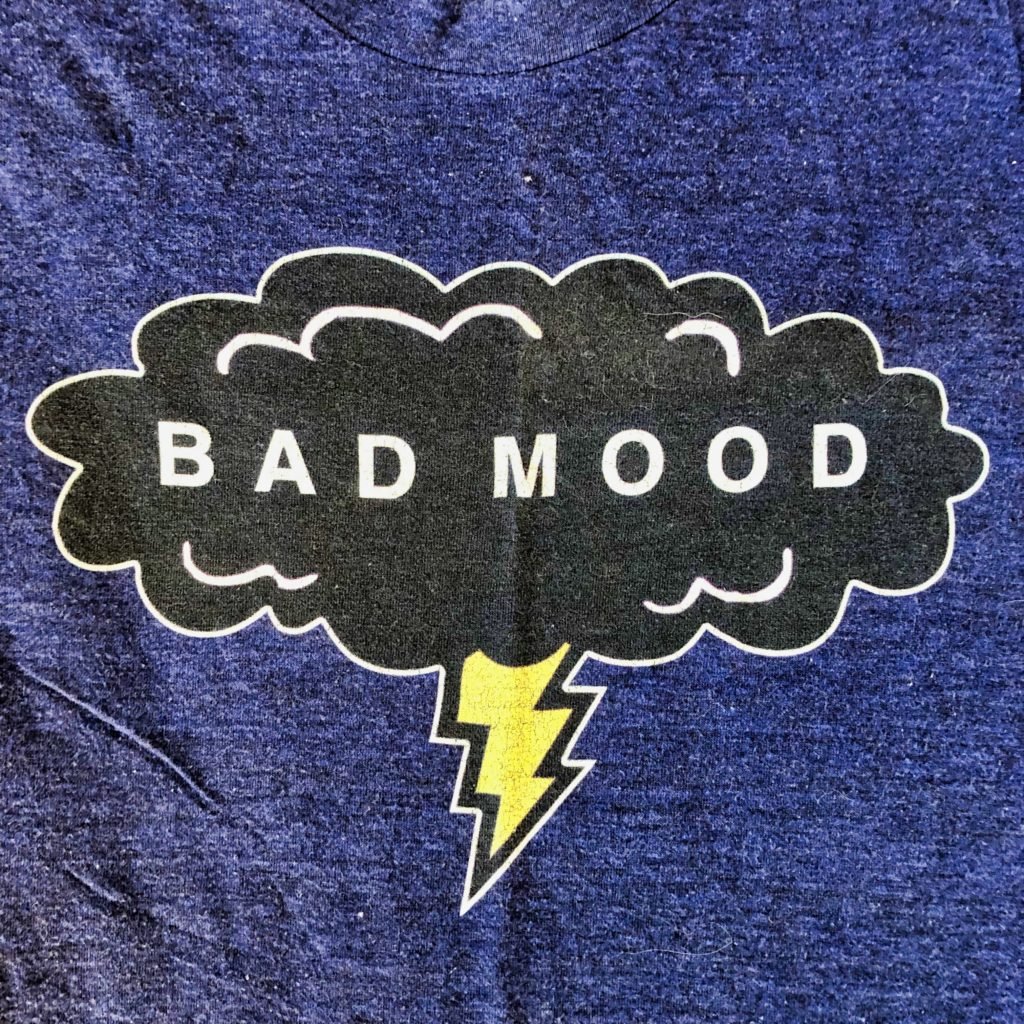For all the writing I’m suddenly doing about nostalgia and memories, my memory is terrible. I’m amazed by people who instantly recall faces or specific events from their teenage years as I can barely remember any of that. It’s frustrating. This frustration popped up again as my friend Jeff, who drove us the five hours to see the Butthole Surfers, wonders why I didn’t mention the pre-dawn speeding ticket. Simply, I don’t remember it. I mean — I know it happened, especially now that he brings it up. But it’s not a part of my brain cargo. That slot is empty.
That makes writing about events from my past a little tricky. I guess that’s the case for all of us, as, often unintentionally, we tailor our memories to fit a present story. It’s Kris Kelvin‘s dilemma and his downfall (you should watch Solaris, either one will do). I suggest starting a journal to document your days if you haven’t already. I’m bummed I didn’t start until a couple of years ago.
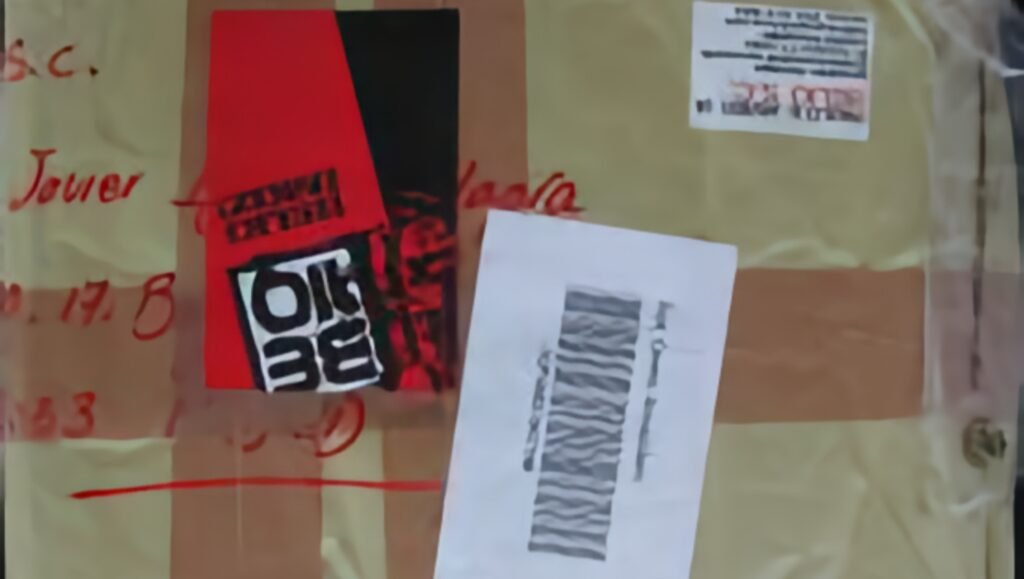
The present story is the post office. I have many memories of the post office. They’re bubbling to the top as I read with frustration about what that institution is going through. Much of the world’s happenings have caused me (and probably you) incredible sadness and distress over the past months. But I have a strong and personal connection with the post office. It’s responsible for much of who I am and how I cultivated that identity. So, yeah, I’m pretty bummed out right now.
I opened my first post office box when I was sixteen. All you needed to get a P.O. Box was a driver’s license, so, in my world, one quickly followed the other. Living in Central Louisiana in the late ’80s, my internet was Factsheet Five and the classifieds in Maximumrocknroll. That’s where I found punk rock pen-pals, weirdos with photocopied zines, mail art deviants defacing postcards, and experimenting artists encoding noise signals on cassette tapes. I needed a place to receive these subversive materials without alarming disapproving parents. The post office came to my rescue. I’ll go as far as to say that the post office saved my life.
I’ve had a P.O. Box ever since. Every time I move, one of the first things I do is visit the post office and fill out that application. It’s like I have a timeline of my life marked by each of those boxes. I still remember the numbers for some old ones (not bad for someone with a shitty memory). Each box had a primary purpose, different from the one before. That P.O. Box timeline becomes a signifier of what was important to me at that point in my personal history.
The first box was about connecting and ‘finding the others.’ Discovering who I was and if there were people in the world sharing these strange interests. It turns out there were.
I opened my second box at the beginning of college, where I was still connecting and figuring things out. But I also remember The Village Voice appearing in the box weekly. I’d pour over the ads for the live music coming through the NYC area and dreaming about being in a place where I could see all of that. To me, that box was about the future and its dreams.
Things got complicated with the third P.O. Box. I moved to Florida, grabbed a box, and got involved with the college radio station. It’s a long story I’ll write about someday, but I helped lead a protest movement against the corrupt faculty managing the station. As they employed me (I was the music director), I had to do my activism in secret, distributing leaflets and petitions to be returned to an anonymous mailing address. This unidentifiable P.O. Box drove the faculty crazy — I know they suspected I was behind it, but they couldn’t prove it.
One day, in the heat of the radio station scandal, I checked my mail at the post office. There was a slip for a certified letter. I took this to the counter, and the postman told me I had to print my name and sign to receive this mail. Of course, the sender would receive this form with my name as a receipt. This was obviously sent by the suspecting station management. No thanks, and nice try!
My fourth P.O. Box was in downtown Orlando. I opened a record store — Bad Mood Records — and the post office was directly across the street. Incredibly convenient. That was also when I co-founded the Eighth Dimension label and started DJ’ing professionally. So this box was all about receiving vinyl — tasty 12″ promos from across the globe. Every couple of weeks, I faxed out a short store newsletter to all my favorite record labels with my Q-BAM top 10 chart. My phone bill was out of control, but it was worth it. Most days, there were at least a couple of records arriving at my P.O. Box.
In the early 2000s, I moved across town, which meant a new post office and P.O. Box. I started my music publishing business, so I was using my P.O. Box to receive contracts, notices, and other legal papers for the first time. Grown-up stuff. This post office also makes me think about the Great Recession, as I helped support myself by selling off my vinyl collection through Discogs. Ten years before, I went to the post office every day to see what records got sent to me. Now my daily visits were about sending records off.
These days I have a P.O. Box that’s only used for business. You’ll find it listed at the bottom of my email newsletters. I visit it maybe once a week (and even less now due to lockdown). I don’t necessarily think that’s entirely due to the internet and online communication. Yes, this newsletter might be a mailed zine at a different time. But all these trappings of adulthood — the permanent home address, the decreased need to seek new connections, the DJ’ing career that’s now in the past — have made my post office visits infrequent. But I still get a thrill when I open the P.O. Box’s tiny door and there’s something surprising waiting for me.
So, that’s my little love letter to the US Postal Service. I know a lot of people that could write their own. And many of those people also love music.
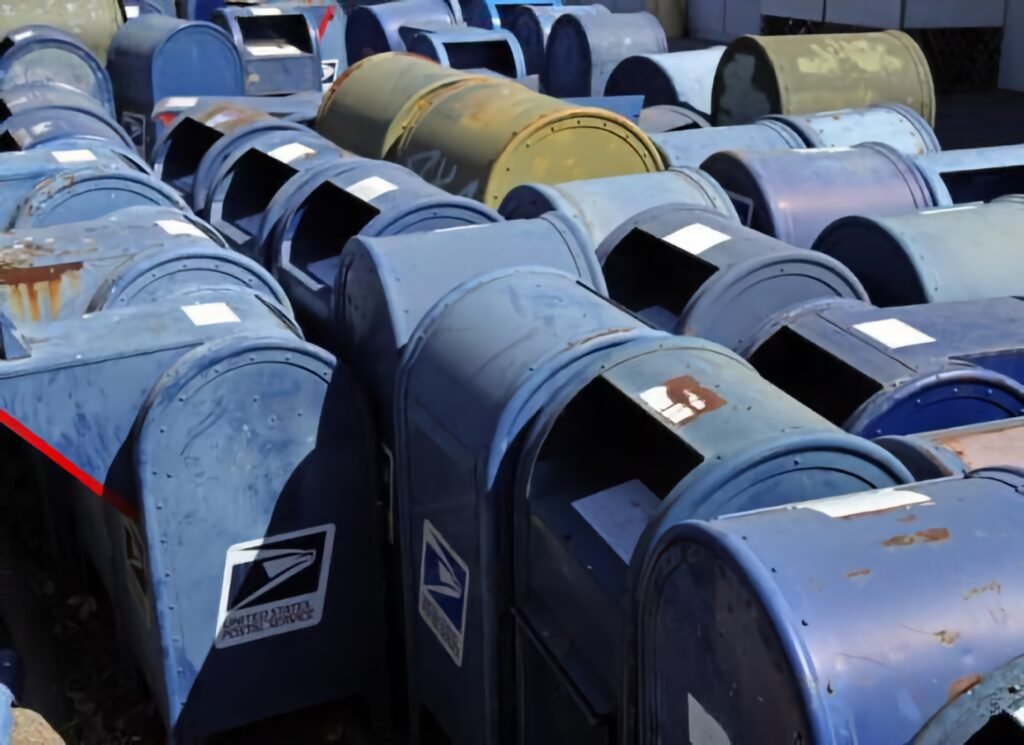
The chaotic state of our postal system comes at an especially bad time for the music community. Without in-person visits or merch tables on tours, record stores and artists rely on the USPS to get records and other physical paraphernalia to fans. Media Mail is a godsend here — one can send a record anywhere in the USA at a slower pace for a reduced price. Media Mail was how I mailed the vinyl I sold through Discogs, and it was remarkably dependable — I rarely ran into problems with delays or damaged goods. I’m betting Media Mail is a nightmare right now.
The demand for physical music formats — vinyl, CDs, cassettes — has increased alongside growing dissatisfaction with streaming platforms. Artists make more of a profit, and fans feel supportive of their favorite artists. There’s also a desire for something tangible to hold — representing membership in a cultural movement — that’s absent from digital music. The resurgence of ‘legacy formats’ is a compelling narrative in the modern music industry, an unexpected trend that’s welcomed a lot of analysis. In a new interview with Damon Krukowski, Bandcamp’s Ethan Diamond says, “half of the sales on Bandcamp at this point are for physical goods.” That even surprised me.
What happens to this aspect of fandom with a crippled postal service? Without Media Mail? What happens to record stores and Discogs sellers and vinyl labels? Book stores and other indie sellers are in the same boat, too.
It’s essential to consider the impact the US Postal Service has on maintaining small businesses and independent endeavors. I don’t want to live in a world where only corporations can afford to ship using expensive privatized services or, in the case of Amazon, their own shipping infrastructure. That’s one of my fears about what happens when we come out of the pandemic: a lot of the framework that supports independent business will be gone.
Here’s a good Twitter thread on what we can do to help the USPS. Some of the top posts’ info is a little dated as this is a quickly developing situation. Scroll down a little for some concrete things you can do. And here’s a useful page for ‘How You Can Help Save the US Postal Service’ from the fantastic art site Hyperallergic.
This post was adapted from Ringo Dreams of Lawn Care, a weekly newsletter loosely about music-making, music-listening, and how technology changes the culture around those things. Click here to check out the latest issue and subscribe.
